Related Articles
 Jan 08, 2025
Jan 08, 2025
Is Varicose Vein surgery covered under the health insurance policy in India
 Health Insurance
Health Insurance
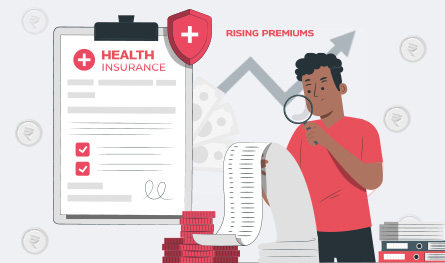
If you ever feel like your health insurance premium is slowly eating up a sizeable chunk of your pay stub every year, you are definitely not alone. With the rising costs of medical procedures and insurance companies adjusting to increasing claims and inflation, even basic health insurance coverage can start to feel like a financial burden.

But it does not have to be this way. You can use these smart strategies to help you manage the rising health insurance premium amounts without sacrificing your insurance coverage.
Your first step would be to reassess your current health insurance plan. Are you paying for features and riders you no longer require? Sometimes, trimming unnecessary add-ons can prove to be a big difference.
You should never auto-renew your health insurance plan without comparing. For this, you can use platforms like Paybima to get expert recommendations and know more about the benefits, network hospitals, and, of course, premiums. You might find a better deal than your ongoing policy.
The deductible is the part you pay out of pocket before your insurance kicks in. Picking a higher deductible can seriously bring down your monthly premium. Just make sure it’s an amount you’re comfortable covering if things suddenly go south.
Instead of choosing a high-value-based health insurance plan, you can look for a top-up or a super top-up plan. They kick in once a set threshold is crossed, making them ideal for unexpected large expenses. Make sure you check these plans before making your decision.
Insurance companies often offer wellness incentives in the form of discounts on premiums to policyholders who maintain a healthy lifestyle. By getting routine annual checkups, tracking steps, and making lifestyle choices, you can save a decent amount on your premium amounts.
Instead of getting individual insurance plans for your spouse, parents, or even children, you can consider getting a family floater plan. These plans offer better value and a lower insurance premium, especially if the covered members are younger and healthier.
Oping for a family floater plan could be a good idea as it is an umbrella plan. Click here to learn more about Family Floater Plans.
NCB or No-Claim Bonuses are an annual discount you get on your yearly premium amount every claim-free year, depending on your health insurance plan. You can save quite an amount by getting small treatments and check-ups done without leaning on your health insurance plan.

Paybima Team
Paybima is an Indian insurance aggregator on a mission to make insurance simple for people. Paybima is the Digital arm of the already established and trusted Mahindra Insurance Brokers Ltd., a reputed name in the insurance broking industry with 17 years of experience. Paybima promises you the easy-to-access online platform to buy insurance policies, and also extend their unrelented assistance with all your policy related queries and services.
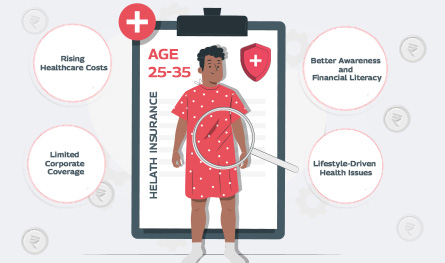
In what’s being called a quiet healthcare revolution, India’s young working professionals are reportedly making the most health insurance claims – outpacing even senior citizens. Surprised? So are the insurance providers. Young adults ranging between 25 and 35 years, who are often assumed to be in peak health, are now dominating the charts in health insurance claims by age.

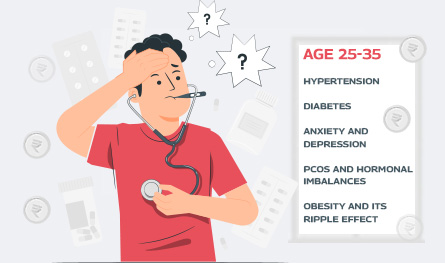
If you think lifestyle-related health issues only show up after 40, think again. Youth no longer guarantees immunity. Today’s 25 - 35 age group is increasingly facing medical issues that only plague older adults. The reason? Long working hours at the desk, deliveries on speed dial, and a social life that rarely includes a decent amount of sleep are some of the reasons for the early onset of medical conditions like diabetes, anxiety, and hypertension.

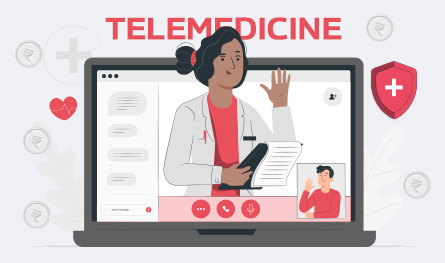
Remember when a simple doctor’s visit felt like planning a mini-event? First, you had to book an appointment days ahead, then sit in a crowded waiting room, scrolling aimlessly while watching the clock tick past your slot. It's not exactly the highlight of anyone’s week. Well, those days are pretty much over. Enter telemedicine – the futuristic healthcare option that is slowly becoming the cornerstone of modern medical insurance plans. From coughs to consultations, you can now connect with a doctor from your living room or your office—or even mid-binge on your favourite series. It’s healthcare that works around your schedule, not the other way around.

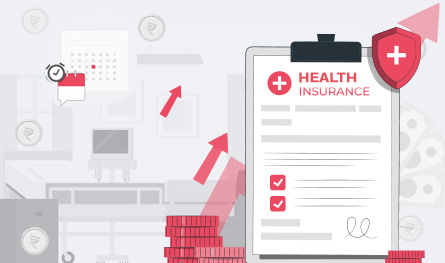
Have you noticed how your routine visits to your doctor or a basic diagnostic test feel more expensive every year? Well, you’re not imagining it. Healthcare costs are rising faster than ever before, and unlike general inflation that affects groceries and fuel, medical inflation hits harder because it generally strikes during emergencies.


If you ever feel like your health insurance premium is slowly eating up a sizeable chunk of your pay stub every year, you are definitely not alone. With the rising costs of medical procedures and insurance companies adjusting to increasing claims and inflation, even basic health insurance coverage can start to feel like a financial burden.
